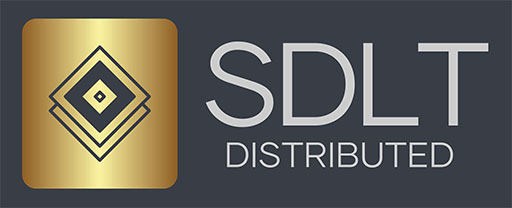
COVID-19 Accelerates Digital Transformation
Before the COVID 19 pandemic began, digital transformation was a priority sat on the strategic agendas of many organisations, with its potential still waiting to be realised. Despite trends illustrating digital transformation well underway pre-COVID, firms’ willingness to invest in and customers’ willingness to adopt digital remained inconsistent (across players, markets, continents, etc.). A clear digital divide emerged alongside COVID-19, exposing the urgency for digital transformation as companies who had already invested in their digital capabilities displayed more agility and resiliency in the immediate aftermath of the crisis.
COVID leads the race to digitise
Leaders were driven to digitise parts of their business so as to better serve their customers and protect their employees facing unprecedented conditions. The pandemic caused extreme changes in customer behaviour (i.e. increased willingness to engage digitally) and forced radical online migration of the service economy. Within eight weeks, the acceleration of digital transformation was so substantial that it equated to a huge five-year leap forward in consumer and business digital adoption. The deployment of remote work and digital access capabilities witnessed so far – to services across a wide range of industries – is truly historic.

The road to COVID recovery is digital
The work that began as a race to adapt and overcome the challenges of the COVID-19 pandemic, continues today. Rapid migration to digital technologies driven by the virus will certainly extend into the recovery period, as organisations further seek to accelerate their digital capabilities for enhanced competitiveness. Three main structural changes that will greatly influence the upcoming recovery include; radical changes in customer behaviours and preferred interactions, non-applicability of historical data and forecasting models, and the switch to remote-first business models. Through digital transformation, companies can successfully re-align business/operating models to fit the rapidly changing external environment, including the post-COVID recovery period. In Thailand, businesses are investing in the use of digital channels and platforms to enable uninterrupted continuity of business operations in the event of future crises.
Digital recovery agenda for businesses in Thailand includes:
![]() Refocusing digital efforts
Refocusing digital efforts
Switch to digital-first models, accelerate the shift to digital channels, reassess changing customer behaviours/needs, reimagine customer journeys, meet new safety needs, regularly renew digital agendas.
![]() New data and artificial intelligence for operational improvements
New data and artificial intelligence for operational improvements
Rebuild forecasting and planning models, more sophisticated AI-powered modelling techniques, re-evaluate existing data, analytics for new data sets.![]() Selective modernisation of technology capabilities
Selective modernisation of technology capabilities
Set up/enhance cloud-based data platform, equip agile teams with automated software-delivery, accelerate digital upskilling of the entire organisation, pay attention to cybersecurity.![]() Maintaining the quickened organisational drumbeat.
Maintaining the quickened organisational drumbeat.
Adopt flatter fully agile organisational structures, align agile interdisciplinary teams to the business’s digital priorities, promote remote working models for accessing new labour pools and specialised remote expertise.
Blockchain digital transformation pioneers the next normal
The next normal will be characterised by transformed attitudes towards work, mobility and flexible working models; shifts towards digital labour and greater automation; digital talent bases with extensive digital skill foundations; proposition restructuring i.e. bundling solutions on outcome/as-a-service models; and cashflow friendly gain-share investment models for digital implementations. Blockchain, a type of distributed ledger technology (DLT), has the potential to support the acceleration of digital transformation for businesses across industries and functional areas.
Revolutionary blockchain digital transformation:
Blockchain as a…
![]() Digital Transaction Standard.
Digital Transaction Standard.
Blockchain offers a trusted and secure network for peer-to-peer transactions without the need for third-party involvement; creating trust and security for stakeholders (consumers, customers, trade/business partners, etc.) in the anonymous digital world.![]() Accelerator of Business Processes.
Accelerator of Business Processes.
Implement fully automated transactions in different business areas for substantial speed and efficiency gains, whilst benefiting from extremely high levels of security for business processes that store and transfer data.![]() Supply Chain Game Changer.
Supply Chain Game Changer.
Re-organise the supply chain with decentralised blockchain technology that enables maximum transparency for each transaction, which is quickly and easily logged in the blockchain at a marginal cost. Mitigate risk and trace a product’s origin throughout the entire end-to-end supply chain.![]() Architect for Connectivity.
Architect for Connectivity.
The evermore increasing levels of connectivity between communication devices as part of the Internet of Things (IoT) generates vast quantities of data; blockchain platforms are able to securely and transparently manage this colossal amount of data.![]() Smart Contracts Platform.
Smart Contracts Platform.
Smart contracts revolutionise the future digitalisation of business processes as they do not require a central IT system for data security or an intermediary for monitoring rule compliance. These advance agreements are stored on the blockchain for complete transparency and tamper-proof immutability.![]() Fuel for Finance.
Fuel for Finance.
Control numerous processes in the finance function – financing, payment processes, international transactions, etc. – via blockchains that handle digital assets in real-time, with security and precision. Blockchain also offers increasing potential for business intelligence and analytics solutions.![]() Signal of Competitiveness.
Signal of Competitiveness.
Many large companies, in the near future, will demand that their vendors convert interface processes to blockchain technology; thus, blockchain will become vital for business survival during the digital transformation journey.
As B2B and B2C businesses increasingly shift to digital markets, the unrivalled benefits of blockchain and distributed ledgers places them in a strong position to become a pivotal technology of digital transformation.
To find out more about how SDLT can develop customised distributed ledger infrastructure to help accelerate your blockchain digital transformation, please contact Adrian Apperley directly at +66 (0) 8 1751 8308 or through .
Unlocking Sustainable Finance through AI and Blockchain
GreenAI.earth – Unlocking Sustainable Finance through AI and Blockchain By SDLT Asia Team – Blog Post 19 March…
Greenhouse Gases Ledger for emissions management
Human-induced carbon dioxide fuels global warming Greenhouse gases (GHG) are an essential part of Earth’s atmospheric makeup. These…
Blockchain brings seed-to-sale transparency to cannabis
Blockchain and cannabis are two highly disruptive trends that are fundamentally shifting how business is conducted across the…



